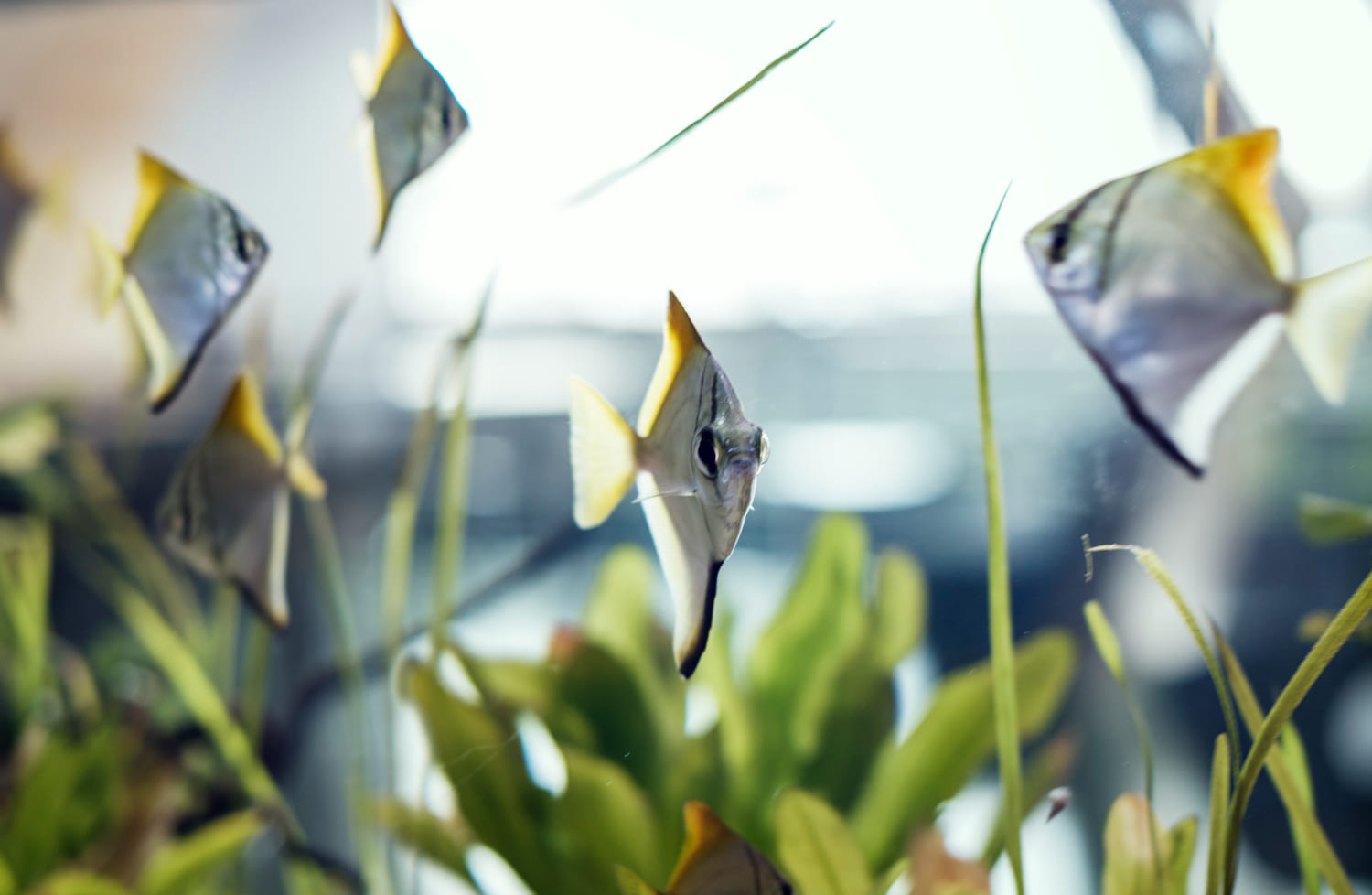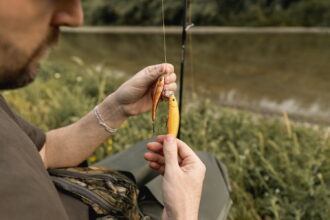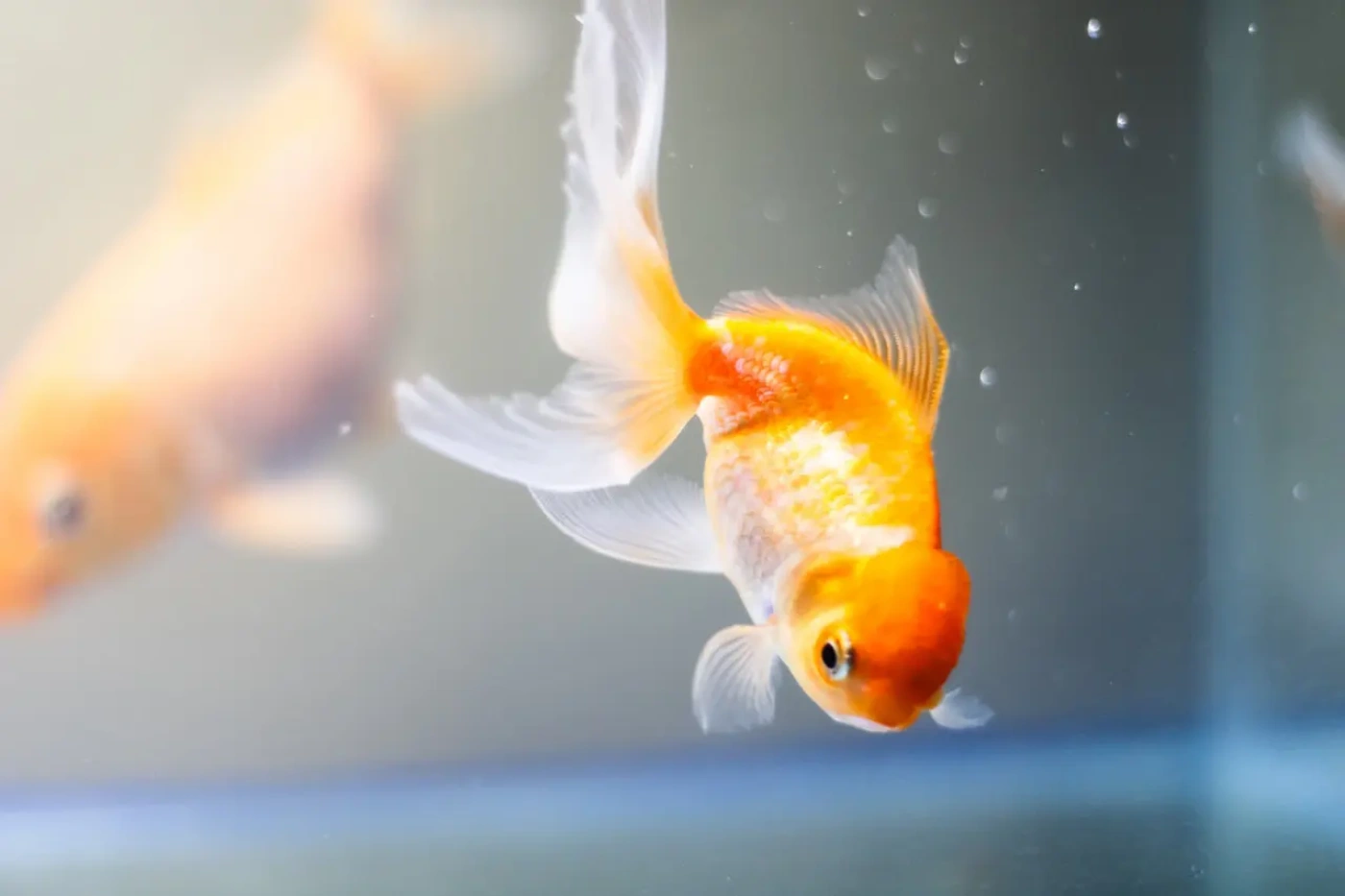Have you ever considered keeping freshwater fish as pets?
Not only are they visually stunning with their vibrant colors, but they also bring a refreshing sense of tranquility to any space.
Whether you’re a seasoned fish enthusiast or just starting your journey into the underwater world, understanding the proper care and maintenance of freshwater fish is essential to ensure their well-being.
In this blog post, we will dive into the fascinating realm of freshwater fish care, exploring the fundamental elements required to create a thriving aquatic environment for your finned friends.
So, get ready to embark on an adventure filled with valuable insights, tips, and tricks to provide your beloved fish with the love and care they deserve.
Definition and significance of freshwater fish care
Freshwater fish care refers to the responsible management and upkeep of fish that live in freshwater environments, such as aquariums, ponds, and rivers.
It involves providing the fish with a suitable habitat, appropriate diet, and proper water conditions to ensure their health and wellbeing.
The significance of freshwater fish care lies in the fact that fish are living creatures that require specific conditions to thrive.
Neglecting their needs can lead to stress, disease, and even death.
Additionally, fish are often kept for their aesthetic value, and providing proper care can enhance their appearance and behavior, making them more enjoyable to observe.
Freshwater fish are also important to their ecosystems and can have a significant impact on the environment in which they live.
Proper care can help prevent the introduction of non-native species and the spread of diseases, which can disrupt the balance of the ecosystem.
Overall, freshwater fish care is important for the health and wellbeing of individual fish, the enjoyment of their owners, and the preservation of the environment in which they live.
Setting up a Freshwater Aquarium
Setting up a freshwater aquarium involves several key steps to create a suitable environment for your fish and other aquatic organisms.
Here are five important steps to consider:
Selecting an appropriate tank size
The first step in setting up a freshwater aquarium is to choose an appropriate tank size based on the number and size of fish you plan to keep.
A general rule of thumb is to have one gallon of water per inch of fish, but larger fish may require even more space.
It is also important to consider the dimensions of the tank to provide enough swimming space for your fish.
Choosing the right filtration system
A good filtration system is essential for maintaining a healthy aquarium environment.
There are several types of filtration systems, including:
- mechanical
- biological
- and chemical
A combination of these systems is often the best approach.
The filter should be sized appropriately for the tank size and the type and number of fish.
Setting up a suitable heating system
Most freshwater fish require a stable water temperature to thrive, so it is important to select a suitable heating system for your aquarium.
A submersible heater is often the best option, and it should be sized appropriately for the tank size and the desired water temperature.
Selecting proper lighting for the tank
Lighting is essential for the health of aquarium plants and can also enhance the appearance of your fish.
LED lights are a popular choice as they are energy-efficient and can be programmed to simulate natural daylight cycles.
Choosing the right substrate and decorations
The substrate, or the material that lines the bottom of the aquarium, should be chosen based on the type of fish and plants you plan to keep.
Gravel and sand are popular options.
Decorations, such as rocks and plants, not only provide a natural environment for your fish but also create hiding places and territories for them.
By following these steps, you can create a suitable and healthy environment for your freshwater fish and other aquatic organisms.
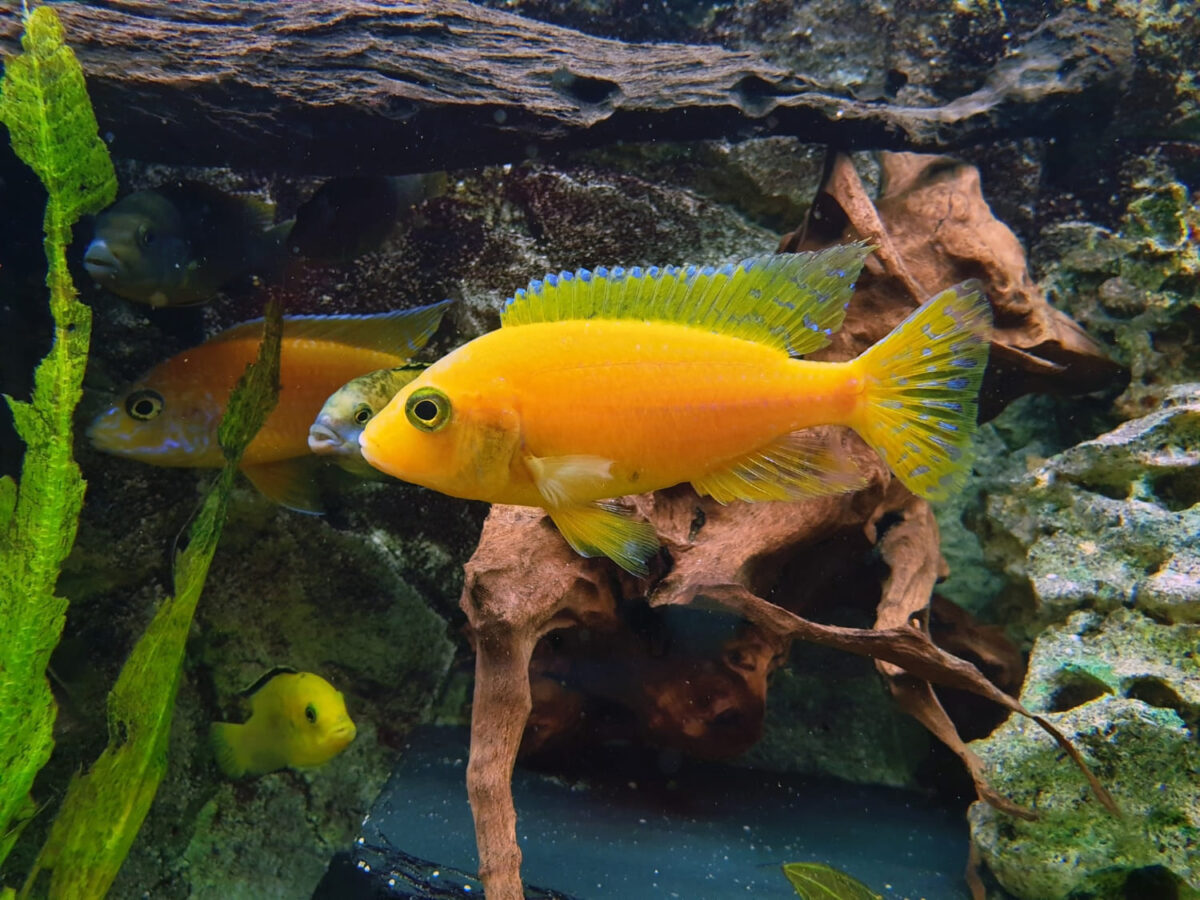
Water Quality Management
Water quality management is crucial for maintaining a healthy and thriving freshwater aquarium.
Here are five important aspects of water quality management to consider:
Importance of maintaining consistent water temperature
Most freshwater fish require a consistent water temperature to thrive.
Fluctuations in temperature can cause stress and even death in fish.
A submersible heater can help maintain a consistent temperature, and it is important to monitor the temperature regularly to ensure it remains within the desired range.
Monitoring and maintaining pH levels
The pH level of the water can affect the health and wellbeing of your fish. Most freshwater fish prefer a pH range between 6.5 and 7.5.
It is important to monitor the pH level regularly and make adjustments as needed using pH-adjusting chemicals.
Understanding the role of ammonia, nitrites, and nitrates
These compounds are produced by fish waste and decaying organic matter in the aquarium.
High levels of ammonia and nitrites can be toxic to fish, while high levels of nitrates can encourage the growth of algae and other unwanted organisms.
A good filtration system can help remove these compounds, but it is important to monitor their levels regularly and take appropriate action if they become too high.
Regular water testing and necessary adjustments
It is important to test the water regularly for various water quality parameters, including pH, ammonia, nitrites, nitrates, and water hardness.
Test kits are readily available and affordable.
Based on the test results, appropriate adjustments should be made to maintain the desired water quality.
Tips for performing water changes effectively
Regular water changes are essential for maintaining good water quality in an aquarium.
- It is recommended to perform a water change of 10-20% of the tank volume every 1-2 weeks.
- It is important to use a dechlorinator to remove any chlorine or chloramine from the tap water before adding it to the tank.
- It is also important to avoid overfeeding the fish, as this can contribute to poor water quality.
By following these guidelines, you can effectively manage the water quality in your freshwater aquarium, ensuring the health and wellbeing of your fish and other aquatic organisms.
Selecting Freshwater Fish
Selecting freshwater fish for your aquarium can be a fun and exciting process.
Here are four important aspects to consider when choosing freshwater fish:
Researching different species and their unique care requirements
Before selecting any fish, it is important to research the specific care requirements of the species you are interested in.
Different species have unique needs in terms of water temperature, pH level, diet, and tank size.
Understanding compatibility and social behavior of different fish
It is important to consider the social behavior of different fish species and ensure they are compatible with each other.
Some fish are solitary and prefer to live alone, while others are social and need to be kept in groups. It is important to choose fish that will thrive in the same environment and get along with each other.
Choosing appropriate tank mates
When selecting fish, it is important to consider their compatibility with other species in the aquarium.
Some fish may be aggressive towards other fish, while others may be preyed upon by larger fish.
It is important to choose tank mates that will coexist peacefully.
Considerations for fish size, aggression, and compatibility with plants
It is important to consider the size of the fish and the size of the aquarium.
Some fish can grow quite large and require a lot of swimming space, while others are small and can thrive in smaller tanks.
It is also important to consider the aggression level of different fish species and their compatibility with live plants, if you have them in your aquarium.
By considering these aspects, you can choose the right freshwater fish for your aquarium, ensuring that they will thrive and coexist peacefully with each other.
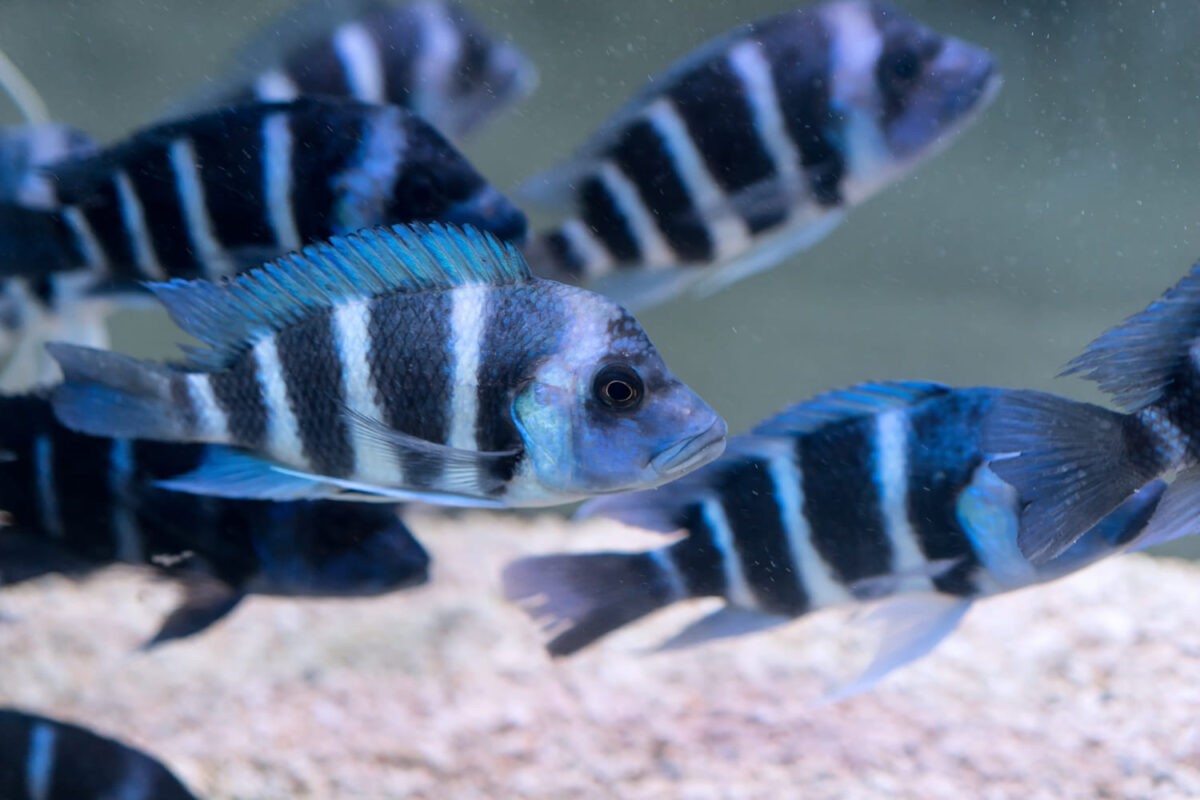
Feeding and Nutrition
Feeding and nutrition are essential for the health and wellbeing of freshwater fish.
Here are four important aspects to consider when feeding your fish:
Determining the dietary needs of specific fish species
Different fish species have different dietary requirements.
Some fish are herbivores and require a plant-based diet, while others are carnivores and require a protein-rich diet.
It is important to research the specific dietary needs of the fish species you are keeping and provide them with appropriate food.
Providing a balanced and varied diet
It is important to provide a balanced and varied diet for your fish to ensure they receive all the necessary nutrients.
Commercial fish food should be supplemented with live or frozen foods, such as brine shrimp or bloodworms, to provide variety and essential nutrients.
Understanding feeding frequency and portion control
It is important to avoid overfeeding your fish, as this can lead to health problems and poor water quality.
A general rule of thumb is to feed your fish a small amount of food once or twice a day, only what they can consume within a few minutes.
It is also important to adjust feeding frequency and portion size based on the size and activity level of your fish.
Tips for ensuring all fish receive appropriate nutrition
- When feeding your fish, it is important to ensure that all fish receive appropriate nutrition.
- Some fish may be more aggressive and dominant at feeding time, while others may be shy or slow to eat.
- It is important to observe your fish and make sure that all individuals are getting enough to eat.
- One way to do this is to feed your fish in multiple locations in the tank, ensuring that all fish have access to food.
By considering these aspects, you can ensure that your freshwater fish receive appropriate nutrition, promoting their health and wellbeing.
Disease Prevention and Treatment
Disease prevention and treatment is an important aspect of freshwater fish care.
Here are four important aspects to consider when preventing and treating diseases:
Importance of quarantine for new fish
Quarantining new fish before adding them to your existing aquarium is important to prevent the introduction of diseases.
New fish should be kept in a separate tank for at least two weeks and monitored for any signs of illness before adding them to your main aquarium.
Recognizing common diseases and symptoms
It is important to be able to recognize common diseases and symptoms in freshwater fish, such as:
- fin rot
- ich
- and dropsy.
Symptoms may include changes in behavior, loss of appetite, discolored or damaged fins, and white spots on the body.
Establishing a proper quarantine protocol
If you suspect that a fish in your aquarium is sick, it is important to remove the fish and establish a quarantine protocol.
The sick fish should be kept in a separate tank and treated for the appropriate disease.
It is important to avoid using the same equipment, such as nets and siphons, between the quarantine tank and the main aquarium to prevent the spread of disease.
Treating and preventing common freshwater fish diseases
There are various treatments available for common freshwater fish diseases, such as:
- medications
- water changes
- and salt baths.
Preventative measures, such as maintaining good water quality and avoiding overfeeding, can also help prevent diseases.
It is important to research the appropriate treatment for the specific disease affecting your fish and follow the instructions carefully.
By considering these aspects, you can prevent and treat common freshwater fish diseases, ensuring the health and wellbeing of your fish.
Breeding Freshwater Fish
Breeding freshwater fish can be a rewarding experience for aquarium enthusiasts.
Here are four important aspects to consider when breeding freshwater fish:
Understanding the breeding behavior of different species
Different fish species have unique breeding behaviors, such as spawning, egg-laying, and live-bearing.
It is important to research the specific breeding behavior of the fish species you are interested in breeding to ensure you are providing the appropriate environment and conditions.
Creating a suitable breeding environment
A suitable breeding environment is essential for successful fish breeding.
This may include providing appropriate water temperature, pH level, and lighting conditions, as well as creating a suitable substrate and hiding places for the fish to lay their eggs.
Recognizing signs of fish readiness for breeding
Signs that fish are ready to breed may include changes in behavior, such as:
- increased activity and aggression
- and physical changes, such as a swollen belly in female fish.
It is important to observe your fish regularly and recognize these signs to ensure successful breeding.
Caring for fry and ensuring their survival
Once the eggs have hatched, it is important to care for the fry and ensure their survival.
This may include providing appropriate food, such as:
- live or frozen brine shrimp
- and ensuring the water conditions are suitable for their growth and development.
It is also important to separate the fry from adult fish to prevent them from being eaten.
By considering these aspects, you can successfully breed freshwater fish and enjoy the rewarding experience of watching them grow and develop.

Conclusion
taking care of freshwater fish is both a science and an art.
- By providing a clean and healthy environment
- appropriate nutrition, and proper disease prevention and treatment
- you can ensure the health and wellbeing of your fish.
Additionally, understanding the unique needs and behaviors of different fish species can allow you to create a thriving ecosystem within your aquarium.
Caring for freshwater fish can be a rewarding and fulfilling experience, allowing you to appreciate the beauty and diversity of aquatic life.
Learn more: What are ornamental fish and their types




